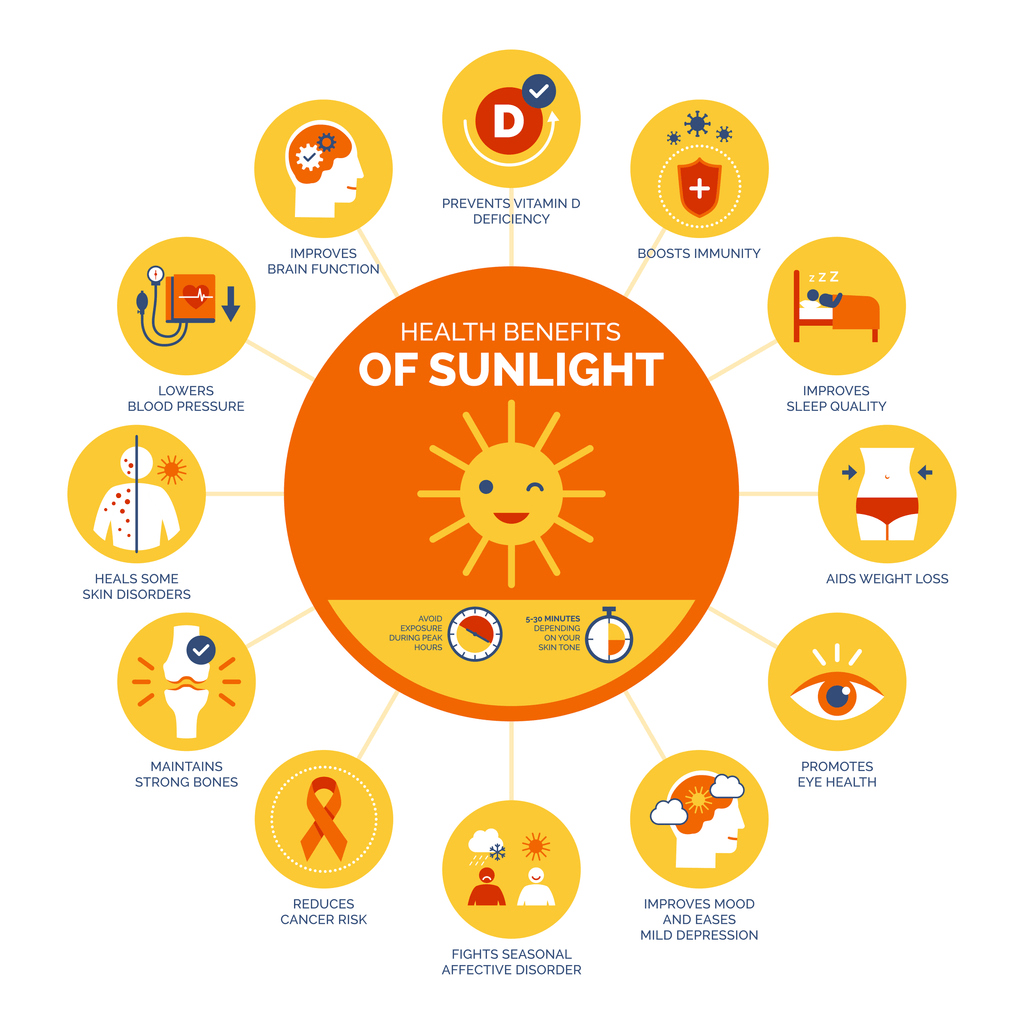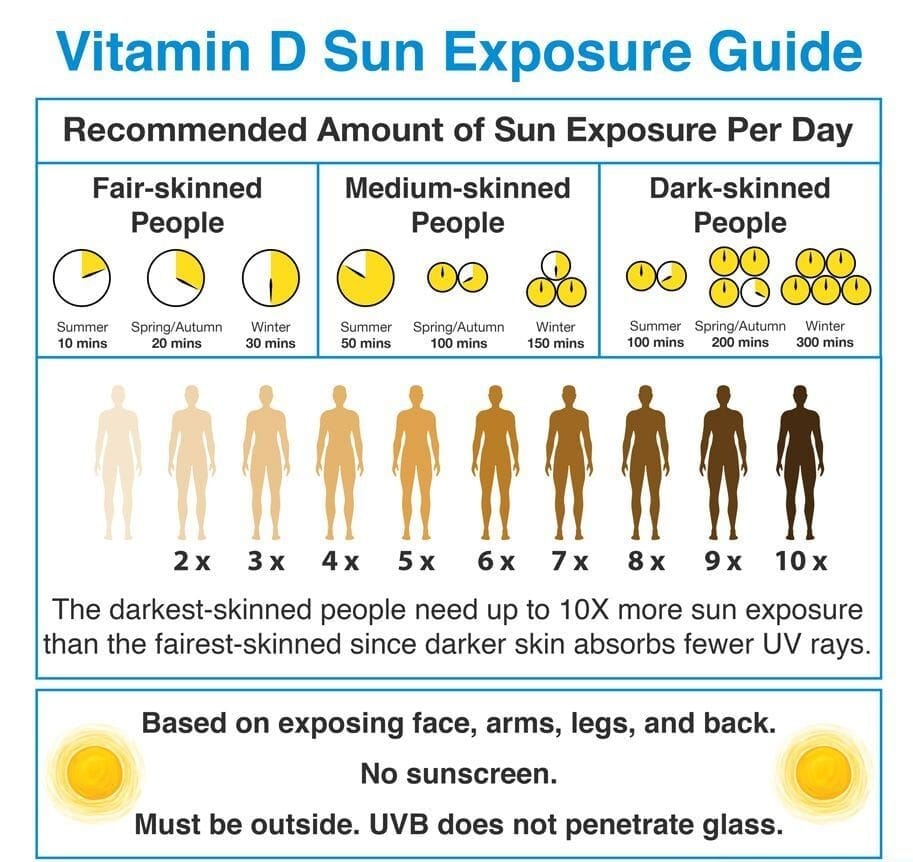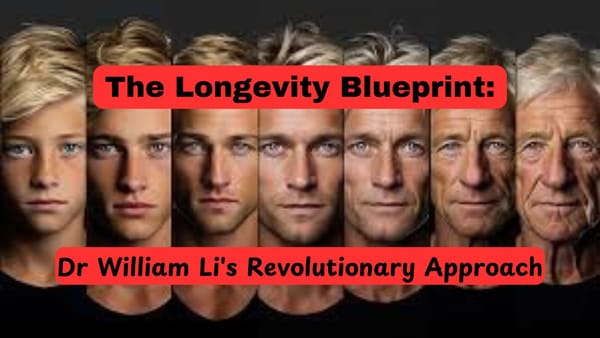Vitamin D Decoded: The Sunshine Vitamin You Can't Ignore
Unlike mainstream warnings against sun exposure, this neurosurgeon warns that our modern light-avoidant lifestyle drives chronic disease.

In an era of sunscreen, indoor lifestyles, and growing health anxiety, vitamin D has become a critical yet misunderstood nutrient. For decades, medical advice has oscillated between warnings about sun exposure and skin cancer to concerns about vitamin D deficiency. Today, we're diving deep into the truth about this essential vitamin—separating myths from scientific facts and empowering you to make informed decisions about your health.
Understanding Vitamin D: More Than Just a Vitamin
Vitamin D is not a typical vitamin—it's a pro-hormone that plays a fundamental role in numerous bodily functions. Produced naturally when our skin is exposed to ultraviolet B (UVB) rays, this fat-soluble nutrient is crucial for:
- Calcium absorption and bone metabolism
- Immune system regulation
- Inflammation reduction
- Cell growth and differentiation
- Neurological function
The Biological Marvel of Vitamin D
When sunlight touches our skin, a remarkable transformation occurs. UVB rays interact with a cholesterol derivative in our skin, converting it into vitamin D3. This process is so efficient that just 10-30 minutes of midday sun exposure can generate significant amounts of vitamin D—far more effectively than any supplement.
Comprehensive Health Benefits of Vitamin D
1. Bone Health and Beyond
Contrary to popular belief, vitamin D does more than prevent rickets. It's critical for:
- Preventing osteoporosis
- Reducing fracture risk
- Supporting muscle strength
- Maintaining dental health

2. Immune System Powerhouse
Emerging research reveals vitamin D's profound impact on immune function:
- Activates immune cells called T-cells
- Reduces inflammatory responses
- Potentially helps prevent autoimmune diseases
- May reduce the severity of infectious diseases, including respiratory infections
3. Potential Cancer Prevention
Groundbreaking studies suggest vitamin D might play a role in cancer prevention:
- Potentially inhibits cancer cell growth
- May reduce the risk of colon, breast, and prostate cancers
- Supports DNA repair mechanisms
- Helps regulate cell proliferation
Sources of Vitamin D: Natural vs. Supplemental
Natural Sunlight: The Ultimate Source
Dr. Jack Kruse and other holistic health experts emphasize the unparalleled benefits of natural sunlight:
- Direct sun exposure allows optimal vitamin D synthesis
- Morning and evening sun exposure provides additional health benefits
- Helps to regulate circadian rhythms
- Supports mental health through serotonin production
Dietary Sources
While supplements are popular, certain foods offer natural vitamin D:
- Fatty fish (salmon, mackerel, sardines)
- Egg yolks
- Fortified dairy products
- Mushrooms exposed to UV light

Vitamin D Deficiency: Silent but Serious
Symptoms to Watch
Deficiency can manifest through:
- Persistent fatigue
- Bone pain
- Muscle weakness
- Depression
- Impaired wound healing
- Compromised immune response
At-Risk Populations
Higher risk groups include:
- Individuals with limited sun exposure
- People with darker skin pigmentation
- Older adults
- Those with obesity
- Individuals with certain medical conditions

Balancing Sun Exposure: Myths vs. Facts
Myth: All Sun Exposure Causes Skin Cancer
Fact: Moderate, mindful sun exposure is crucial for health. The key is balance and protection.
Safe Sun Practices
- Avoid burning
- Gradually build sun tolerance
- Expose skin during less intense sun hours
- Use natural, mineral-based sunscreens
- Consider protective clothing
Expert Perspectives: Dr. Jack Kruse's Revolutionary Insights
Dr. Jack Kruse, a neurosurgeon and biohacking expert, offers a radical reimagining of human health through the lens of light and vitamin D. His work goes far beyond conventional medical thinking, positioning sunlight as a fundamental healing modality rather than a potential health risk.
The Quantum Biology of Light Exposure
Dr Kruse argues that humans are fundamentally light-dependent organisms, with our biological systems intricately designed to process and utilize different wavelengths of electromagnetic radiation. Unlike mainstream medical advice that warns against sun exposure, he posits that our modern light-avoidant lifestyle is a primary driver of chronic disease.
Key Principles of Kruse's Light Theory:
1. Mitochondrial Optimization
Modern humans have become disconnected from natural light cycles. Kruse explains that our mitochondria—the cellular powerhouses—are essentially light-driven engines. Consistent, mindful sun exposure helps:
- Improve mitochondrial energy production
- Enhance cellular metabolism
- Regulate circadian rhythms
- Support optimal hormonal function

2. Electromagnetic Sensitivity
The human body is an electromagnetic antenna, capable of receiving and processing information through light. Dr. Kruse emphasizes that:
- Our eyes are not just visual organs but sophisticated light receptors
- Skin acts as a complex light-sensing and energy-converting system
- Consistent natural light exposure supports neurological and hormonal health
- Blue light from artificial sources disrupts our natural electromagnetic communication
3. Vitamin D as a Hormonal Powerhouse
Unlike conventional views that see vitamin D as a simple nutrient, Kruse describes it as a critical hormonal messenger:
- Regulates gene expression in over 3,000 genetic sites
- Acts as a neurosteroid with profound brain health implications
- Supports complex immune system modulation
- Plays a crucial role in cellular communication and repair mechanisms
Practical Implementation of Dr Kruse's Light Protocol
Dr. Kruse recommends a comprehensive approach to light exposure:
- Morning Sun Exposure: 20-30 minutes of direct sunlight without sunglasses, preferably during sunrise
- Grounding: Walking barefoot on natural surfaces to enhance electromagnetic connection
- Minimal Blue Light Exposure: Reducing artificial lighting, especially after sunset
- Strategic Supplementation: Using vitamin D supplements only when natural exposure is impossible
- Cold Exposure: Integrating cold therapy to enhance metabolic flexibility

The Deeper Implications
Kruse's work suggests that our health crisis stems from a fundamental disconnection from natural light cycles. By reintroducing consistent, mindful sun exposure, individuals can:
- Reverse chronic inflammation
- Support mental health
- Enhance metabolic function
- Improve immune resilience
- Support neurological health
Reclaiming Your Sunshine
Understanding vitamin D isn't about fear—it's about informed, balanced choices. Embrace sunlight, consume nutrient-rich foods, and consider personalized supplementation under professional guidance.
Call to Action
- Get your vitamin D levels tested
- Gradually introduce safe sun exposure
- Consult healthcare professionals about your individual needs
- Listen to your body's natural rhythms
Vitamin D is more than a supplement—it's a vital connection between our bodies and the natural world. Reclaim your health, one ray of sunshine at a time.







